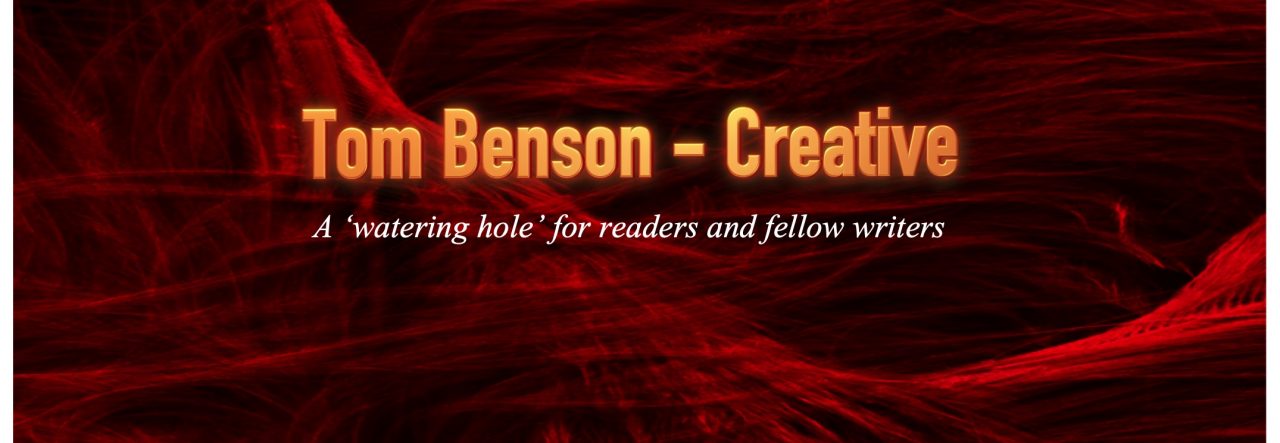![RT1-Tangmerewing[1]](https://tombensoncreative.com/wp-content/uploads/2014/05/rt1-tangmerewing1.jpg?w=300&h=221) In Part 1, I suggested looking at the idea of writing a simple three verse poem as the basis and precursor to a story.
In Part 1, I suggested looking at the idea of writing a simple three verse poem as the basis and precursor to a story.
In Part 2, I added three more verses and it gave the story a little more foundation.
In this stage, I’ll look at the main ingredients needed to write a short story. The other aspect of this is, of course, to use the simple poem as a guide for the story’s plot.
I’ve got the basic story in poetic form, but I know even before writing the prose, the story may alter from the one I started out with. That’s not an issue to be concerned about, because the main purposes of the poem were: to provide an outlet for an idea and to form a basic structure.
What else do we need to consider?
1. A decent title, but that is best left until after the story is written.
2. A hook in the intro. A good intro will start with dialogue or action. I usually aim to start with action, a point of crisis I create within the first 30 words.
3. If it’s a short story, we should keep the timescale short. It should be set over hours or days; not weeks or longer.
4. In line with the short timescale, we should have a single plot, no deviation or sub-plots to distract the reader.
5. We are aiming to place a normal person in extraordinary circumstances and then make them react. We can also consider giving the main character an issue to deal with, which changes them in some way by the end of the story. There should be some progression.
6. We should aim to keep the character count low; four or less if possible. Keep it intimate.
7. Just as we should aim to have a ‘hook’ at the start to capture our reader, we should provide some back story to say how the character or characters got in the position they find themselves. Again, not too much information.
8. As well as a good start with the hook, and back story, we must know how and when to stop. When the tale is told; stop. No extra bits and pieces. On occasion, one more line might work, but mainly; reach the end and stop. Make sure the main character has resolved the conflict or crisis.
9. Try to use the senses when writing. Through good imagery, let the reader see, feel, smell, hear, what is going on. No flowery descriptions though; keep it brief.
10. Try to keep dialogue natural. How? Short and sharp exchanges are the most natural.
With all that in mind and the poem, I’ve already written a few short passages. In my next post, I’ll produce a list of new titles that I’ve come up with to replace the working title.
I’ve imposed a target on myself of no more than 1500 words. That will stop me from waffling on, and it will keep the story tight. If you haven’t been given a word count target – impose one.

